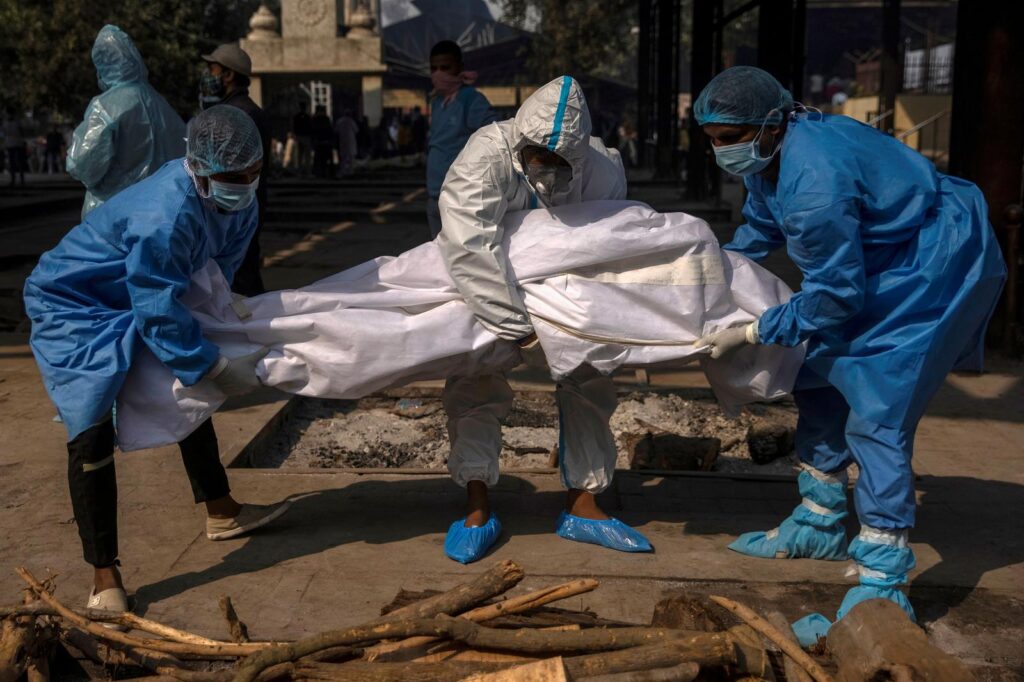Delhi Records Its Highest Covid-19 Deaths, Hospitals Swamped
Nov 13, 2020 | Pratirodh Bureau
FILE PHOTO: Health workers and a relative put the body of a man, who died due to COVID-19, on a pyre for his cremation in New Delhi on November 13, 2020
Delhi’s COVID-19 deaths rose by a record high on Thursday and it also reported the most number of infections in India, an increase attributed to the city’s toxic air and a lack of physical distancing in public places around a major festival.
While daily case additions have come down significantly in the country as a whole since a mid-September peak, the capital city of 20 million people is going through its worst phase in the pandemic.
Delhi late on Thursday reported 104 new deaths and 7,053 new infections. Data from the federal Health Ministry early on Friday showed that infections in the country rose by 44,789 in the past 24 hours, taking the total to 8.73 million, only behind the U.S. tally.
India’s deaths increased by 547 to 128,668.
At a river-side crematorium in east Delhi located near a hospital, relatives of people who had succumbed to the disease waited as bodies burned on funeral pyres placed side by side.
Rajesh, a 38-year-old ambulance driver in a blue hazmat suit, said he and others had already ferried six bodies to the crematorium on Friday, after carrying 14 on Thursday. They had transported only three to four bodies last week.
“There’s a sudden increase in deaths,” said Rakesh, who gave only his first name. “May be this is because of pollution, crowding.”
Many Delhi hospitals have already run out of intensive care beds and even normal COVID-19 beds are getting occupied fast.
The Delhi High Court on Thursday ordered 33 of the city’s private hospitals to reserve 80% of their critical-care beds for coronavirus patients.
The federal government has asked Delhi to prepare resources to handle up to 15,000 cases a day during the winter season, when pollution peaks in the city and respiratory issues jump.
The air is only likely to worsen on the weekend due to thousands of firecrackers ignited during Diwali, the festival of lights. Delhi residents have already swarmed markets to buy gifts for family and friends.
Doctors say PM2.5 pollutants, fine particles found in high concentration in Delhi’s air, can break the nasal passage barrier, weaken the inner lining of lungs and facilitate the spread of coronavirus infection.
